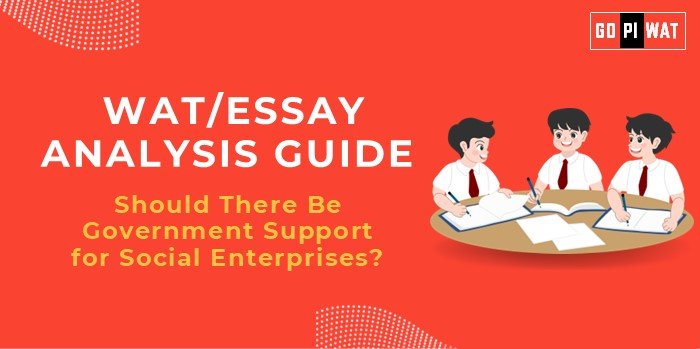📋 Should There Be Government Support for Social Enterprises?
🌐 Introduction to the Topic
Social enterprises play a pivotal role in addressing societal challenges while operating sustainably. Government support for such organizations raises important questions about public spending priorities and the balance between profit and purpose.
Social enterprises exist at the intersection of business and social impact. From providing affordable healthcare to innovating for climate action, these organizations aim to fill gaps that traditional businesses or non-profits cannot efficiently address. However, their potential is often hindered by funding constraints and limited scalability.
📊 Quick Facts and Key Statistics
- 🌍 Global Social Enterprise Revenue: Estimated at $500 billion annually, reflecting their economic impact.
- 🇮🇳 India’s Social Enterprise Growth: Over 2 million organizations contribute to sectors like healthcare, education, and agriculture.
- 👩💼 Employment Impact: Social enterprises employ over 20 million globally, offering dignified livelihoods.
- 🤝 Public-Private Synergy: Countries like the UK and Canada provide tax incentives and grants to support social enterprises.
🏗️ Stakeholders and Their Roles
- 🏛️ Government: Formulating policies, providing grants, offering tax incentives.
- 🌱 Social Enterprises: Innovating and implementing scalable solutions.
- 💼 Private Sector: Partnering for financial support and resource sharing.
- 🌍 Communities: Benefiting from improved access to essential services and opportunities.
🏆 Achievements and Challenges
🎉 Achievements:
- 🏥 Enhanced Access: Affordable healthcare and education in underserved areas.
- 💪 Economic Empowerment: Creation of micro-entrepreneurs in rural regions.
- 🌿 Environmental Innovations: Introduction of renewable energy projects reducing carbon footprints.
⚠️ Challenges:
- 💰 Limited Funding: Dependency on grants and philanthropy.
- ⚖️ Regulatory Gaps: Lack of tailored legal frameworks for hybrid business models.
- 📈 Scaling Issues: Difficulties in replicating models at national or global levels.
🌍 Global Comparisons:
- 🇬🇧 UK: Big Society Capital, a government-backed institution, supports social enterprises with £600 million in funding.
- 🇧🇩 Bangladesh: Grameen Bank showcases microfinance as a successful model.
💡 Structured Arguments for Discussion
Supporting Stance: “Government support for social enterprises is crucial to bridge societal gaps in education, healthcare, and climate action.”
Opposing Stance: “Excessive government support could distort competition and create dependency among social enterprises.”
Balanced Perspective: “Government intervention is essential, but it should focus on enabling self-sufficiency through sustainable policies and frameworks.”
🗣️ Effective Discussion Approaches
Opening Approaches:
- 📊 Start with a Statistic: “Social enterprises in India employ over 20 million people, yet struggle to scale without policy support.”
- ❓ Pose a Question: “Can social enterprises truly scale without systemic government backing?”
Counter-Argument Handling:
- ✔️ Address funding concerns by highlighting hybrid financing models.
- 🌍 Suggest international best practices, like the UK’s public-private partnerships.
⚙️ Strategic Analysis of Strengths and Weaknesses
- ✅ Strengths: Impact-focused, community-driven innovation, sustainability potential.
- ❌ Weaknesses: Funding dependency, regulatory ambiguity.
- 📈 Opportunities: Expansion via technology, partnerships with corporates.
- ⚠️ Threats: Market competition, economic downturns.
🎓 Connecting with B-School Applications
Real-World Applications:
Discussing public-private partnerships in operational management projects or exploring financing models in social impact electives.
Sample Interview Questions:
- 💬 “How can governments measure the impact of social enterprises?”
- 📊 “What role does technology play in scaling social enterprises?”
Insights for Students:
- 📘 Develop frameworks for sustainable business models.
- 🌍 Research case studies on government-backed social enterprises.


